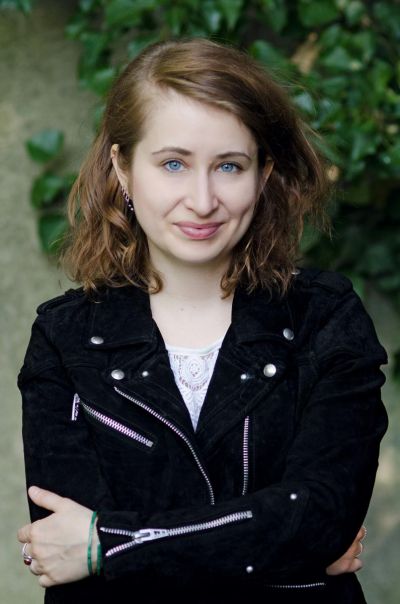Mithu M. Sanyal

As a child, Sanyal’s grandmother moved from Zabrze in Poland with her family at the end of the First World War to Duisburg, where miners were needed at the time. Mithu Sanyal can still hear the “Ich bin ein Marxloher Mädchen” [“I am a Marxloh girl”] today. Her grandfather came from somewhere near Kraków. His mother died early from an illegal abortion and he was then brought up in Munich. With his grandparents, he learnt to play different wind instruments and demonstrated a great talent for painting. However, when he returned home in 1949, after having been a prisoner of war in Russia, he stopped playing music and stopped painting. When his daughter trained to be a secretary and became a salaried employee, as a proud representative of the working class, he considered this a ‘break with culture’. So he hardly noticed it when she married a ‘black man’, more precisely an engineer who had left his home in Bengal to try his luck in Germany after finishing his degree. And, like other Bengalis in the 1950s and 60s, he did find work there. And he also found a wife. Mr and Mrs Sanyal wanted to start a family but they failed to fall pregnant. After a few years of trying without success, the doctors advised the couple to give up hope. And precisely at this moment, Mrs Sanyal found out she was pregnant, and less than a year later, Mithu first saw the light of day in the Marienkrankenhaus hospital in Düsseldorf.
With her mother, a working class woman with a Polish background, and her father an Indian graduate from a Bengali Brahman family, the highest and very well educated caste in Hinduism, Mithu Sanyal’s background could be described in some respects as “diverse”. She worked out very early on that people wanted to pigeonhole her – usually wrongly. She says, “The fact that people were compulsively unable to stop pigeonholing me – as in ‘oh, you are so racial’ – always left me searching for genuine propositions.” By “genuine”, Mithu Sanyal predominantly means consistent for oneself and for others.
From an early stage, writing was always her way of seeking out the genuine propositions. “I was writing before I could write” she says and tells how she dictated her first stories to her mother; stories which she is embarrassed about today. It is all Enid Blyton’s fault: “From the moment my mother read the first Enid Blyton books to me, I wanted to be an author”. Sanyal has now written a long essay about Blyton, which also tackles the racism debates concerning the English children’s author. The text will appear in autumn in the anthology “Canceln. Ein notwendiger Streit” published by Hanser Literaturverlage.


